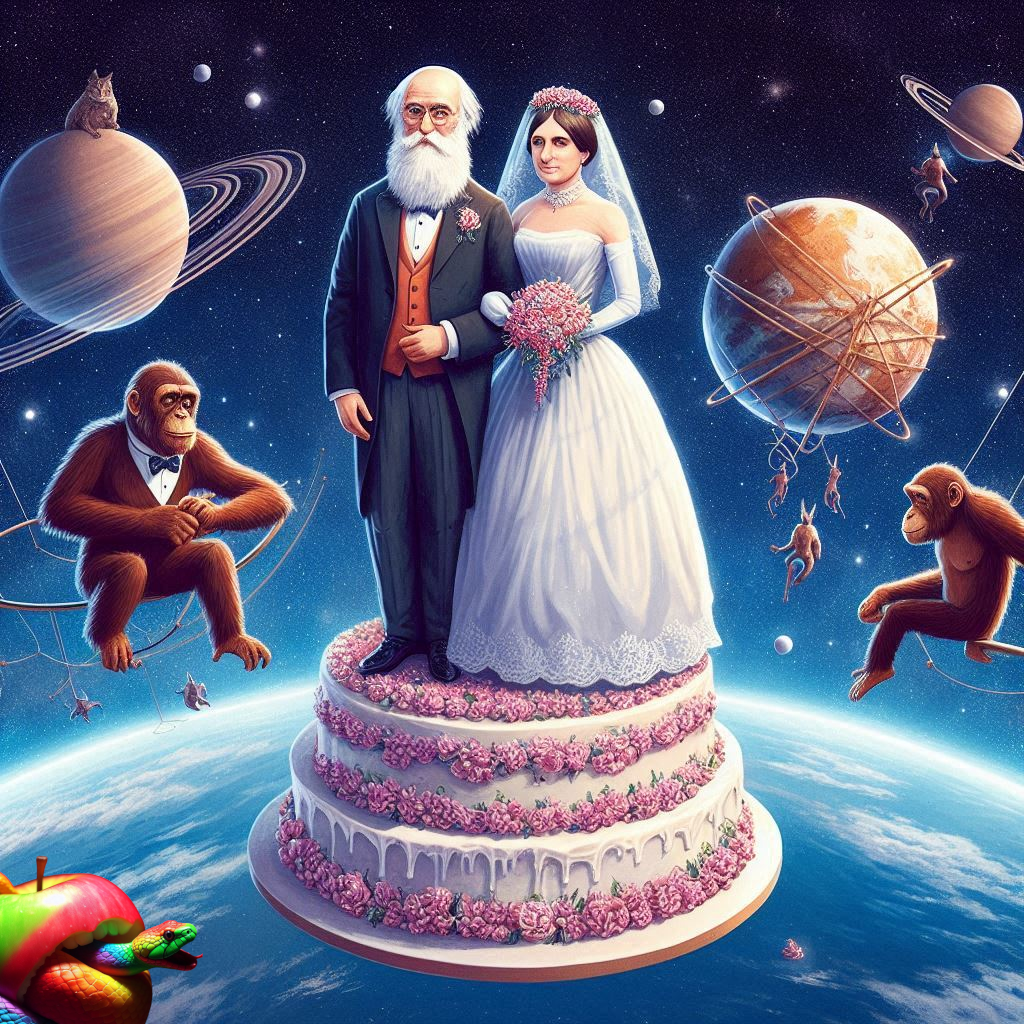Reaction reading to John Collier and Michael Stingl's "Evolutionary Naturalism and the Objectivity of Morality"

A list of reactions to other evolution~morality papers and chapters and stuff can be found at Reactions to papers on evolution~morality.

Beginning with the abstract's opening. My stepping through my first reading of the abstract might be all I do today.
We propose an objective and justifiable ethics that is contingent on the truth of evolutionary theory.
Wow. A strong opening, then we get the word contingent, and then something I can agree with, at least, that’s where we should begin.
A quick thought is that there is a difference between being contingent on evolutionary theory, and the contingencies of evolution. What if truth is a contingency of some evolutionary process, and not on reason per se (general theory or description of it)? Logic/reason as a form of objectivity? But here I will interject and say logic is a hindsight, it might predict but cannot guess. What if 'objective' is contingent on that truth, that outcome of evolution.
I guess this about the formal contexts not the detail we describe ‘on the ground’.
We do not argue for the truth of this position, which depends on the empirical question of whether moral functions form a natural class, but for its cogency and possibility.
Uh, huh as suspected.
It’s interesting reading it this way, a step at a time, tutoring myself. Watching my reactions.
Thinking is like predicting the next line. Well, guessing really. We read like inverted LLMs guessing ahead and then comparing the guess with the disappointment. LLMs map the writer doing that process with their own work, but with in empathy with an imagined reader, reducing the possibilites within the contraints of the prompt. (My first experimental writing was based on this framework in which stream of consciousness was taken not to be a report or description, but a command or instruction, a prompt, a spur, a boost.)
What is reason really? Cogency and possibility.
The writers here are trying to open up a space for talking about justifiable ethics that is 'out there'. I wonder what they think ‘out there’ is?
The position we propose combines the advantages of Kantian objectivity with the explanatory and motivational advantages of moral naturalism.
Kant but just the advantages of Kant. And then we are onto the main subject as indicated in the title of the piece and with which they seek to hybridise, I go google yet again ‘moral naturalism’ —and wonder why this is compromised in such deontological sympathy.
“‘Moral naturalism’ is a term with a variety of meanings in ethics, but it usually refers to the version of moral realism according to which moral facts are natural facts. ” — https://plato.stanford.edu/entries/naturalism-moral/
Ethical naturalism (also called moral naturalism or naturalistic cognitivistic definism)[1] is the meta-ethical view which claims that:
- Ethical sentences express propositions.
- Some such propositions are true.
- Those propositions are made true by objective features of the world.
- These moral features of the world are reducible to some set of non-moral features.
— https://en.wikipedia.org/wiki/Ethical_naturalism
I think point 4. on reducibility is the link with which they seek to hybridise or marry Kant and evolutionary theory…. —I do not think the contingent details of evolutionary process supports them.
My reading begins to revolve more and more around the word objective. Is this the reality principle I see before me? Or just a rock.
It avoids problems with the epistemological inaccessibility of transcendent values, while avoiding the relativism or subjectivism often associated with moral naturalism.
Perceived benefits: “avoiding the relativism or subjectivism often associated with moral naturalism.” I am pretty sure that subjectivism is an objective reality of the world, as a detail of conscious life, so, we, as in me, are getting confused at this point. The clarity is becoming a thicket of metaphysics all the while boning out objectivity.
There is always a slippage of frame and scale. They are arguing that the abstract evolutionary theory can be married objectively (logically??) while not taking on board [objective realities like] subjective experience? But taking the lessons of that experience for reasons of explaining motivation? It’s like _not_ having your cake and eating it too.
Our position emerges out of criticisms of the contemporary sociobiological views of morality found in the writings of Richard Alexander, Michael Ruse, and Robert Richards.
Okay. Criticism of something I have not read, so that’s why I have no insight into their frame. Will have to add them to my to-do list.
And a scare word, ‘sociobiological’. The wedding proposal is thus a noble project.
I will read a little further. Be aware dear reader, my own criticisms of sociobiology lie in mostly in the folk version of these views, the just-so stories and the effort to find orgins for things that are outcomes of processes and thus are ‘contingent’.
I go on to read the introduction, opening:
In traditional Kantian ethics, moral values are objective only if they do not depend on any particular motivational structure. The justification of morality, on this view, can safely ignore facts about human motivation and desire, although these will, of course, be relevant for judging the moral value of particular acts. But neither fundamental moral values nor their moral force are dependent on the particular facts of the human world.
This is the attempt to not have the cake while eating it, and then adding the icing of moral naturalism on top. I’ll stop here with the comment:
And why are we hungry in the first place? The urge of hunger gives us no recipe for a cake, but your wedding cake is contingent on it.
Collier, John and Stingl, Michael. “Evolutionary Naturalism and the Objectivity of Morality.” Biology and Philosophy (1993) 8: 43-50 via academia.edu Web. 2 Sept. 2024.
See also: Reaction to Collier & Stingl's Evolutionary Moral Realism
